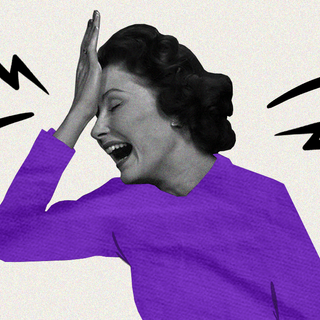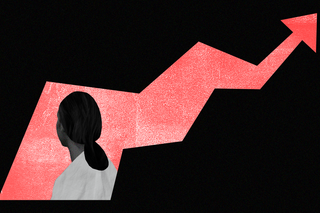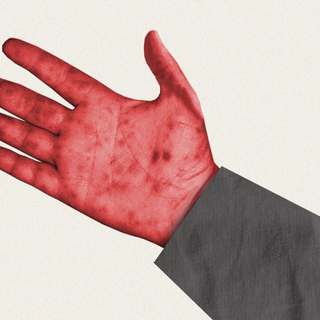
Period Irregularities and Stress Levels Have Risen Together Since 2020: Study
People who were more stressed experienced heavier menstrual bleeding than usual, with their periods lasting longer than they did before.

Ever since the pandemic began, women from across the world have taken to social media to discuss unanticipated irregularities in their menstrual cycles. A digital health platform in India, in fact, had reported that on its portal every one out of three women had reached out to gynecologists under lockdown — mostly, to consult them about disruptions in their periods and other menstruation-related issues.
Until now, experts have suspected that lockdown stress may have been behind the large-scale irregularities, but a new study has just solidified this link.
Published in the Journal of Women’s Health, the study is being touted as “the first U.S. study to evaluate the impact of stress on peoples’ periods.” Through a survey of more than 200 menstruating individuals — who were not pregnant or breastfeeding, had no reproductive disorders or history of gynecological surgery, and weren’t on contraceptives — the researchers found that people who were more stressed during the pandemic experienced heavier menstrual bleeding than usual, with their periods lasting longer than they did before.
“Given the unprecedented nature of the pandemic and its significant impact on mental health, this data is unsurprising and confirms many anecdotal reports in the popular press and on social media,” said Nicole Woitowich, co-author of the study from theNorthwestern University’s Feinberg School of Medicine.
Related on The Swaddle:
It’s Time to Study How Covid19 Vaccines Affect Menstrual Health: Experts
With the lockdown unleashing a mental health crisis upon the world, stress is rampant. “There has been a drastic change in lifestyle since lockdown started. Diets have changed, sleeping habits and patterns have changed, people are under more stress than usual. This all definitely takes a toll on our overall wellbeing,” Dr. Archana S.K., a Chennai-based gynecologist, had told The News Minute.
According to the NHS, stress is one of the leading causes of period irregularities. “A high-stress environment has been linked to altered menstrual cycles. This may manifest in different ways, some women might have their periods earlier while others might be getting them late. Yet others complain about exaggerated cycles and flows. Prolonged exposure to increased levels of the [stress] hormone has also been known to cause menstrual irregularities in women,” Dr. Archana added.
Experts note that excessive release of cortisol — or, the “primary stress hormone” — can suppress one’s reproductive hormones, leading to abnormal ovulation and causing disruptions in people’s menstrual cycles. Besides affecting the intensity or the duration of periods, stress can also contribute to painful cramps. According to a 2004 study examining close to 400 women in China, extreme pain during menstruation was common in people who reported high levels of stress.
Related on The Swaddle:
Survey: Indian Women Unable To Access Menstrual Hygiene Products Under Covid19 Lockdown
However, pointing out a drawback in the present study, an article on PsyPost notes, “There are other factors to consider regarding the onset of menstrual cycle irregularities such as insomnia. Higher rates of insomnia may contribute to menstrual [cycle] irregularities due to disrupted circadian rhythms, which have been known to impact women’s reproductive health.” Given that stress happens to be among the biggest contributors to insomnia, though, the critique doesn’t entirely put it off the hook; in fact, it even bolsters the argument, perhaps, about stress impacting periods directly or indirectly, in one way or another.
But, will the stress-induced effects on people’s menstrual cycles dissipate as soon as the coronavirus does? No one knows yet. However, experts suspect that some people may find themselves dealing with long-term impacts — for instance, one’s borderline PCOS may translate into a full-blown form of the condition; similarly, one’s periods may stop altogether due to extreme, prolonged stress.
“Even if the lockdown continues to ease with time, it is highly unlikely that the socio-economic manifestations of the stress induced by the pandemic will go away anytime soon — and, whether there is any impact of this unprecedented crisis on people’s menstrual cycles will become clearer only as we begin adjusting to this dystopian world,” reads an article previously published in The Swaddle. Evidently, we’re still doing precisely that: waiting and watching.
Devrupa Rakshit is an Associate Editor at The Swaddle. She is a lawyer by education, a poet by accident, a painter by shaukh, and autistic by birth. You can find her on Instagram @devruparakshit.
Related


‘Tomato Flu’ Is Affecting Some Parts of India. What Is It?
